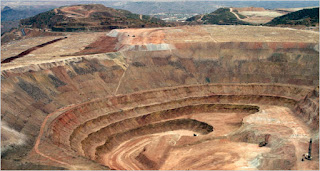Childhood is not the goal, it's the pathway.
 |
| Classroom in Kenya |
 |
| School under a bridge, India |
Food, water, shelter, safety, a loving family, school. The basics are a short list; they're enough as a beginning, I suppose. Oh, and 'hope'. We want so much for our children to grow up with a heart full of hope and expectation, possibilities and distant horizons filled with wonder.
 |
| American classroom |
Our petty infighting over the fiscal cliff is disturbing the marketplaces of the world again. Just like last year and the year before and the year before that. Such things have an impact that the wealthy don't see.
+-+Daily+Price+-+Commodity+Prices+-+Price+Charts,+Data,+and+News+-+IndexMundi+-+Mozilla+Firefox+122013+60736+AM.bmp.jpg) |
| Note the timeline. Misbehavior by wealthy nations has brought trouble to the marketplace. The wealthy complain about their investments; the poor suffer real loss and some starve. |
 The world price of corn has more than doubled in recent years, triggered by the market collapse we caused. Children in Kenya survive on maize meal (corn meal), but the price fluctuations mean they can't afford to eat. A family that spends all their income on food can't afford the increase, so ... Such disruptions often mean kids drop out of school as the family struggles to eat. Many never return, and poverty persists for another generation.
The world price of corn has more than doubled in recent years, triggered by the market collapse we caused. Children in Kenya survive on maize meal (corn meal), but the price fluctuations mean they can't afford to eat. A family that spends all their income on food can't afford the increase, so ... Such disruptions often mean kids drop out of school as the family struggles to eat. Many never return, and poverty persists for another generation. Do the decisions we make as a nation reflect our hope for the world's children as well as our own?
 |
| Northeast Mombasa, street vendors and buyers. The nice stores are for the wealthy. |
 |
| The family business, pushed to the market area ... |
 |
| Just down the road from our work site, children and their teacher make do with a shaded area for the classroom. No chairs, no desks, no fan, no air conditioning ... |
Have you noticed? You have access to more educational material than you'll ever be able to use. These kids, on the other hand, beg for the chance to study and learn. Now is the opportunity they have.
We can help. We can make a difference.

































